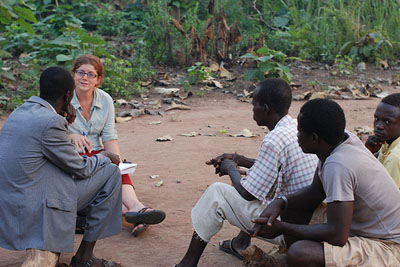
During her recent whirlwind advocacy trip to the United States, Enough’s southern Sudan researcher Maggie Fick spent time speaking to Congressional staffers, policy makers, and students about the immense challenges facing Sudan this year – and what they can do to help improve the situation. With the extensive knowledge that comes from being immersed in a place, Maggie is finding compelling ways to convince people far and wide that they should be watching what happens in Sudan. Here’s an op-ed recently published in her hometown paper, the Bainbridge Island Review:
Getting the word out about Sudan’s struggles | In Our Opinion
I live and work in Sudan, Africa’s largest country, a place that is (among some) known for its multiple conflicts, indicted war criminal president, oil wealth and the immense suffering of its people.
I live in Juba, the capital of southern Sudan, a semi-autonomous region that may become the newest state in Africa in 2011.
I am a researcher for the Enough Project, an advocacy organization working to get the word out about a region where 2,500 people died in 2009 as a result of inter-communal violence.
What is happening here is as important as what’s occurring in other parts of the world that receive much more media attention and international concern.
The recent fighting is just the tip of the iceberg in terms of the long and sad story of southern Sudan, where war raged for more than two decades.
Sudan’s devastating civil war ended in 2005, but it could start again.
This year is critical because if the fragile peace does not hold between the north and south, a new war could begin and all prospects for a resolution of the ongoing crisis in Darfur would be lost.
This matters to me, and through research and advocacy aimed at American policymakers and government officials, my organization, as part of an activist movement across the U.S., is working to make it matter more to U.S. officials who have a chance to help prevent a return to war and promote sustainable peace in Sudan.
Thanks to the excellent education I received at BHS and to the encouragement of my parents, I left Bainbridge for college with the inklings of wanting to know more about what was happening around the world.
Click here to continue reading Maggie’s op-ed.

